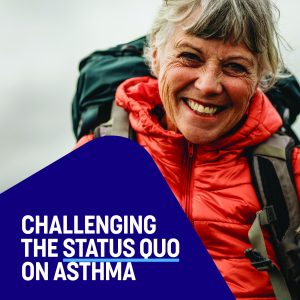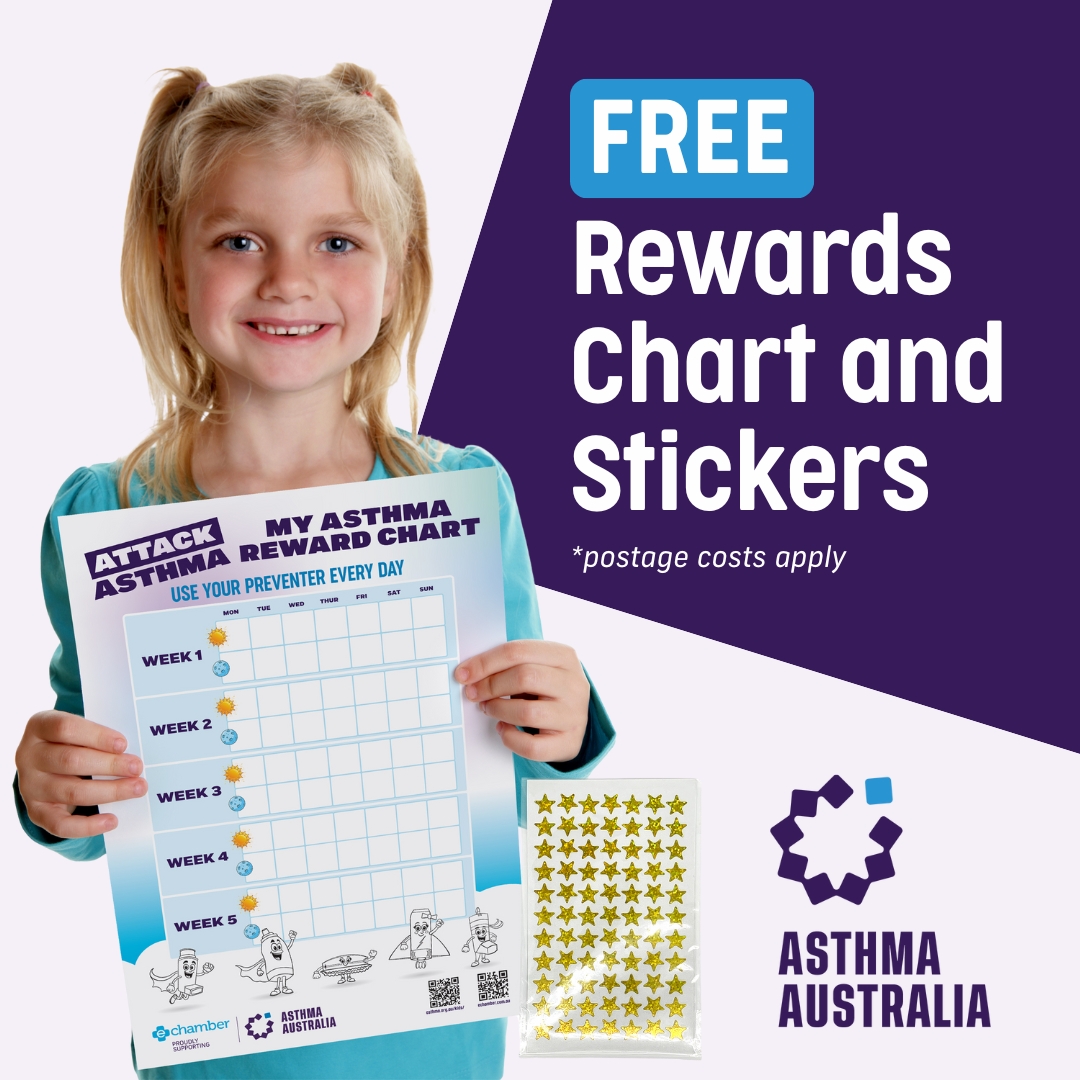 Today is International Women’s Day, a reminder that we face challenges across society and health that impact people with asthma.
Today is International Women’s Day, a reminder that we face challenges across society and health that impact people with asthma.
While we support all people with asthma – regardless of gender, race, or any other characteristic – we recognise women have a significant mark when it comes to statistics and asthma outcomes. Did you know that:
- women older than 15 years who have asthma are more than twice as likely to be admitted to hospital for asthma than men
- women over the age of 50 account for more than 50% of annual asthma deaths
- women who are pregnant have the potential to influence asthma risk factors for their unborn child, such as exposure to smoking and other pollutants
- women are often the primary carers for children with asthma or other family members, often reaching out to us for information and assistance.
Women have the power to influence health outcomes for asthma and we’re here to help them do that.
Why we’re challenging the status quo on asthma
This year, the theme for International Women’s Day of Choose to Challenge resonated for us.
That’s what we want to do for asthma in Australia.
We want to work with women, and all people with asthma, to challenge the acceptance of asthma outcomes in this country.
In recent years, improvements in the death rate for asthma have stagnated. We still lose about 400 people each year to asthma.
Our CEO Michele Goldman says it’s time to challenge that, and the ongoing impact of the lifelong condition.
“As an organisation we’re not prepared to put up with the status quo,” she says.
“We don’t want to just passively accept a situation that is unacceptable.”
She says for the almost two million Australians who live with asthma, the respiratory condition affects all facets of their life and lifestyle.
“It has a huge impact on all aspects of their life, from physical symptoms to emotional health and wellbeing,” she says.
“There are also financial implications because of the cost of medicines.
“Not to mention, it’s the leading cause of absenteeism from school or work. So, if you’re a parent and you have to take a day off work because of asthma then that can impact you financially.
“And socially, it’s an invisible disability and it holds people back from fulfilling their full potential and enjoying life to the max.”
How we’re pushing for change for asthma
In many cases we know what we need to do to improve outcomes for people with asthma.
Ms Goldman says the risk profile for asthma is largely avoidable, yet for almost one million people with asthma it is not well-managed.
“Unlike some of the other severe or rare diseases, the burden of asthma is largely avoidable,” she says.
“We’re choosing to challenge it.”
“We’re lucky here in Australia. We have great treatments; we have a good healthcare system. We have the components in place so that most people should be able to live free, full and active lives with asthma.
“Asthma Australia is well-established as a national body and every day we are working to shake up the system and see how we can do things better.”
“We are working with people with asthma to understand their lived experience so we can design more effective approaches to asthma management.”
We help people to live their life. To breathe easy. And not just to live, but to have a full and empowered life, striving for goals and achieving them. A life without limits.
When you’re a young person with asthma, or you have a child with asthma– we’re here.
When you have asthma and you exercise, or you’re having a baby– we’re here. When you need to learn about triggers, prevention, or puffers – we’re here.
And with one in every nine Australians directly impacted by asthma, our work is critical to the health of all Australians. It is among the top 20 reasons people present to hospital emergency departments.
Asthma matters to all of us. Asthma Australia is here for you and your family when you need us.
To learn more about our asthma projects, click here.
To read more on how we are advocating for change, click here.
If you have questions about your asthma management, you can speak with an Asthma Educator via 1800 ASTHMA (1800 278 462).





 1800 278 462
1800 278 462



